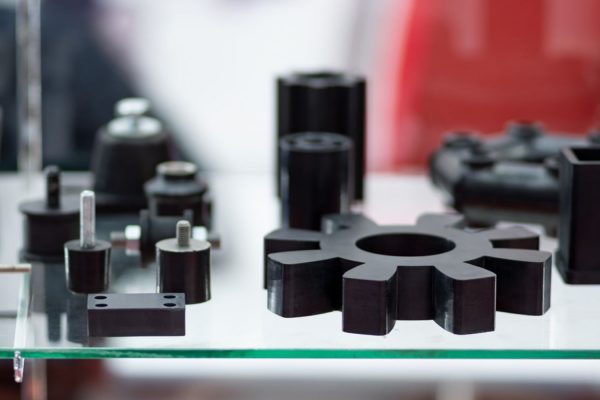Because of its unique combination of lightness and flexibility, nowadays plastic has replaced metal in many applications.
It is a versatile, cost-effective material that offers endless opportunities for innovation.
Plastic materials are used virtually everywhere, from transportation to electronics, from industrial machinery to construction, and in countless other industries. The car we drive, the computer we work with, the pipes that bring water and gas into our homes… All of these things depend on plastic components that need to be assembled and fastened properly for our safety, comfort, and efficiency.

The particular characteristics of plastics require specific fastening systems, which must be considered during the design phase.
Plastic Fasteners: Features and Requirements
When we talk about plastics, we actually refer to thousands of different polymers available on the market. A first distinction to make is between thermoplastics and thermosetting materials:
- Thermoplastics can be melted and molded multiple times. They are generally melted at high pressures, injected into molds, and allowed to cool until ejected;
- Thermosetting materials undergo changes through heat and pressure that permanently modify their nature. The object made through molding, if heated again, can no longer change its shape.
We can say that there are no universal guidelines for fixing plastic materials: each situation is unique and must be carefully studied to identify the most suitable fasteners for a given project.
The performance of fasteners on plastics is affected by several factors, such as:
- The flexural modulus, which is the measure of how a given material deforms when weight or force is applied;
- The type of reinforcement added to materials, for example in glass or carbon-reinforced plastics;
- The coefficient of thermal expansion. It must be remembered that plastics expand much faster than metals when subjected to the same thermal load;
- The creep rate, i.e. the deformation of materials subjected to constant stress for long periods at high temperature.
Characteristics such as ductility, thermal expansion, or retention strength change from one type of plastic to another. This is why laboratory testing is often the only way to determine the performance of a fastener. Our field application engineers can accompany customers through every step of the production process, from selecting the best fasteners to designing a customized solution.
Specialinsert® Inserts for Plastic Materials
Standard fasteners can often cause problems when working with plastics, which is why Specialinsert® has designed highly innovative solutions. Bushes, nuts, quick fasteners, threaded, press-fit, or heat-set inserts: our range of fasteners for plastic materials can meet any requirement.
We recommend the following solutions:
- IA12 1 self-threading bushes in brass with head, among the most suitable fixing systems for fiber-reinforced plastics;
- MUBUX 851 threaded inserts, an ideal solution for fastening thermoplastic materials when hot, press or ultrasonic insertion is required;
- Expansion threaded bushes IPR2, widely used when fixing thermoplastic materials by cold insertion through pressure and expansion.
Want to know more? Check out all Specialinsert® inserts for plastic or contact us to choose the right solution together.
This article was originally published by Specialinsert.


